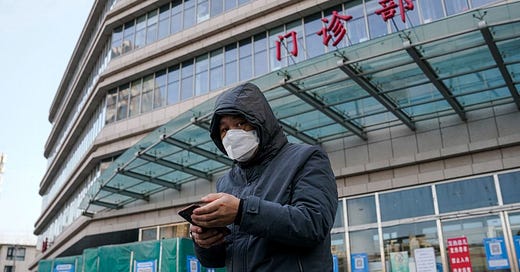China Is Facing an Explosion of COVID Cases: The Chinese People Are Paying the Bill for the Mistakes of Xi Jinping and the CCP.
The Chinese do not understand how a virus could change from ultra dangerous to harmless in such a short time on a simple decision of Xi Jinping ...
After three years of patient construction, the sanitary dam set up by the Chinese government against COVID-19 has finally broken. And the Omicron variant is likely to take everything in its path. In Beijing, until mid-November 2022, the virus remained a marginal phenomenon. Since then, cases have multiplied at a dizzying pace.
The policy of systematic sc…
Keep reading with a 7-day free trial
Subscribe to Sylvain Saurel’s Newsletter to keep reading this post and get 7 days of free access to the full post archives.




